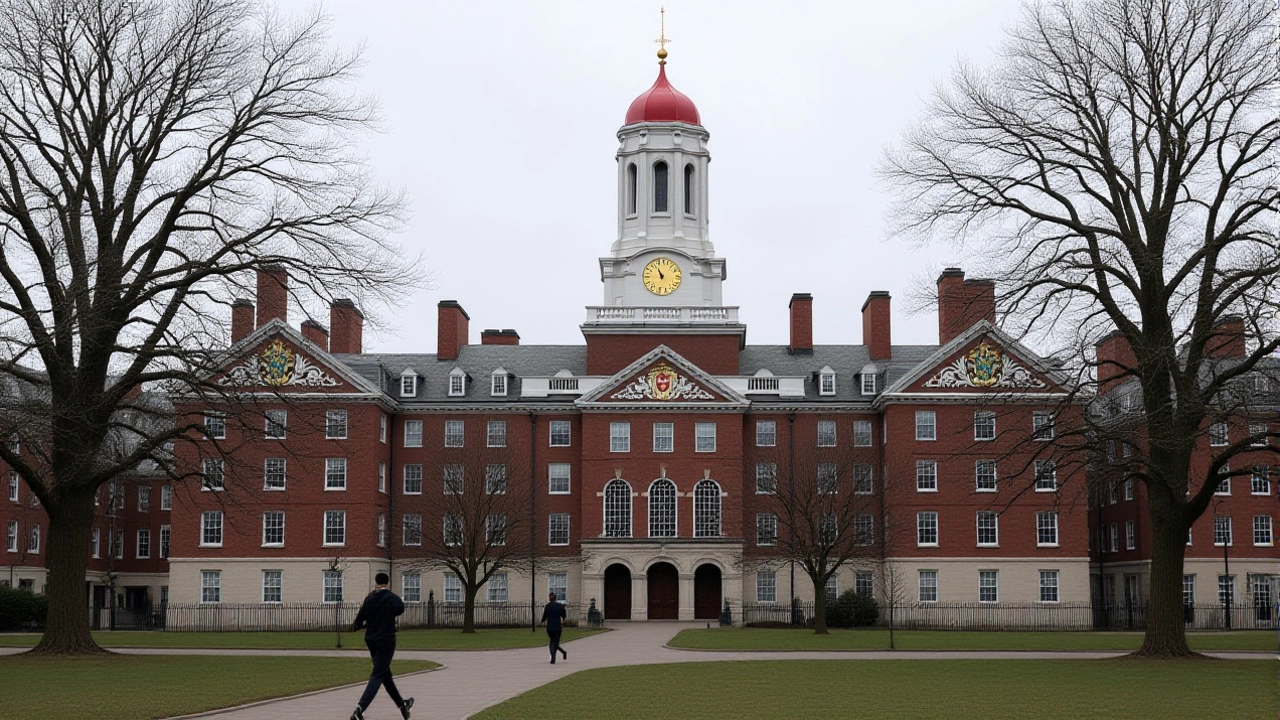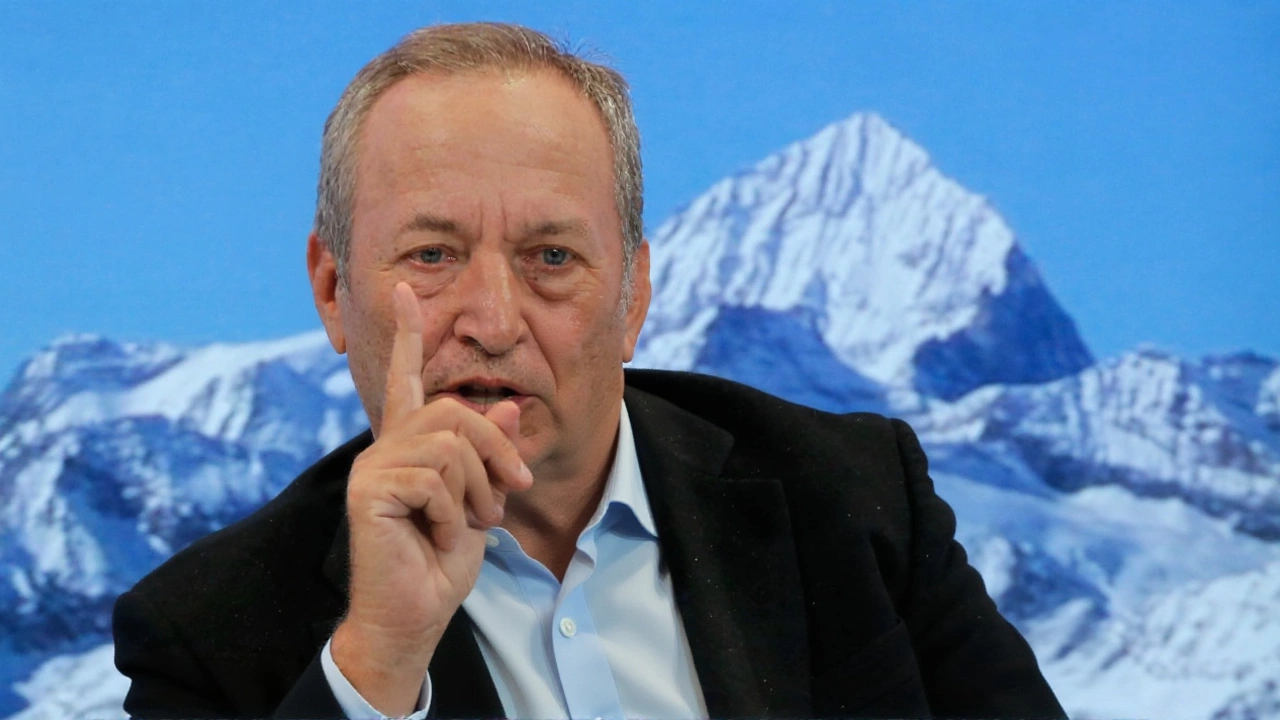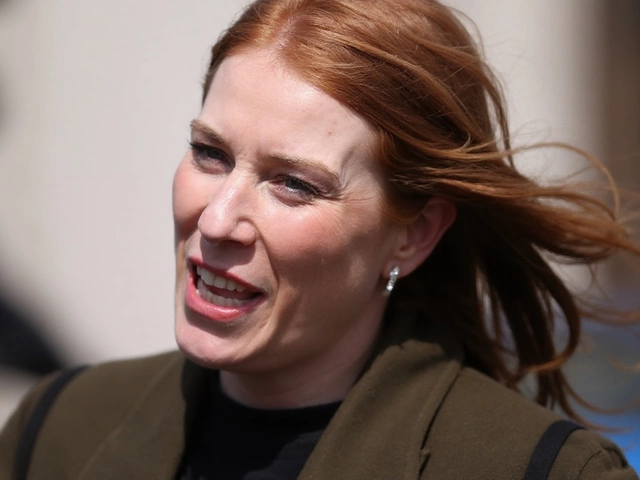When Larry Summers said he was "deeply ashamed," it wasn’t just a mea culpa — it was the sound of a decades-long reputation cracking open. On November 18, 2025, the 69-year-old former U.S. Treasury Secretary, ex-president of Harvard University, and former head of the National Economic Council under President Obama announced he was stepping back from all public roles after emails revealed he’d maintained contact with convicted sex offender Jeffrey Epstein as recently as 2019. The emails, released by the U.S. House of Representatives on November 17, show Summers exchanging messages with Epstein — including one where he asked for dating advice about a woman he called a "mentee." The timing? Just four months before the Miami Herald broke its explosive 2018 investigation into Epstein’s abuse of underage girls. It’s not just what he said. It’s when he said it.
The Emails That Broke Him
The correspondence, uncovered as part of a broader House investigation into Epstein’s network, paints a disturbing picture. On March 17, 2019, Summers wrote to Epstein seeking counsel on how to approach a female colleague. Epstein replied, warning that sending a note would be "bad form." Another exchange from July 5, 2019 — just one day before Epstein’s arrest — found Summers casually updating him on his vacation in Cape Cod. Epstein’s tone? Not shocked. Not disapproving. Almost collegial. And in at least one message, Summers questioned whether women had the "intrinsic aptitude" for science and engineering — a view that had already cost him his Harvard presidency in 2006. The fact that he revisited those ideas with Epstein, of all people, didn’t escape notice.Who Cut Ties — and Who Didn’t
The fallout was swift. By November 18, Summers had resigned from the board of OpenAI, stepped down from the Center for American Progress, and left Yale’s Budget Lab. But he insisted he’d keep teaching at Harvard — a position he’s held since 2006. That decision sparked outrage. Senator Elizabeth Warren, the Massachusetts Democrat who’s long criticized Summers’ economic policies, demanded Harvard sever all ties. "You don’t get to keep your podium while your name is linked to a predator," she told reporters. Harvard, for now, remains silent. Faculty members are divided. Some see Summers as a flawed but brilliant economist; others say his continued presence normalizes complicity.Political Firestorm
The scandal didn’t stay confined to academia. On November 20, 2025, President Donald Trump directed the Department of Justice and FBI to probe Epstein’s connections with "prominent Democrats," explicitly naming Summers. The move was widely seen as politically motivated — but it forced Democrats into a corner. Democratic strategist Alencia Johnson, who worked on Warren’s 2020 campaign, said: "The timing is everything. He kept talking to Epstein after the Herald’s investigation. That’s not ignorance. That’s choice." Meanwhile, former Florida Attorney General Pam Bondi, who handled Epstein’s 2008 plea deal, reiterated in July 2025 that no new evidence warranted charges against third parties — a statement that now feels less like closure and more like a shield.
Why This Matters Beyond One Man
This isn’t just about Larry Summers. It’s about who gets to stay in the room when powerful institutions look the other way. For years, Summers was treated as a policy elder statesman — a man whose brilliance excused his abrasiveness. But his continued contact with Epstein, especially after the 2018 exposé, reveals a pattern: the willingness of elite circles to compartmentalize morality when it suits their interests. The emails show not just poor judgment — but a normalization of association with a known predator. Institutions that once celebrated him as a thought leader now scramble to distance themselves. But the damage lingers. Students at Harvard are asking: If our professor still speaks to Epstein in 2019, what else are we being taught to ignore?What’s Next?
The Department of Justice and FBI have confirmed their probe is ongoing, though no indictments have been announced. Harvard’s governing board is expected to meet in early December to discuss Summers’ status. Meanwhile, OpenAI has appointed a new board member, and the Center for American Progress has quietly removed his name from all public materials. But the real test will be whether anyone in power — in academia, politics, or tech — dares to ask why these relationships were allowed to persist for so long. The answer may be more uncomfortable than the emails themselves.Frequently Asked Questions
Why did Larry Summers keep communicating with Jeffrey Epstein after his 2008 conviction?
The emails don’t clarify his motive, but they show he maintained contact through 2019 — long after Epstein’s guilty plea for soliciting a minor. Summers says it was a "major error in judgment," but experts suggest he may have been drawn to Epstein’s wealth and access to powerful networks. The timing — especially the 2019 messages — suggests he either underestimated Epstein’s notoriety or chose to ignore it.
Why is Senator Elizabeth Warren demanding Harvard fire Summers?
Warren argues that Summers’ continued association with Epstein — particularly after the 2018 Miami Herald investigation — makes him unfit to represent Harvard’s values. As a Massachusetts senator and former Harvard Law professor, she sees his presence as a moral liability. Her stance reflects growing pressure on institutions to hold even elite figures accountable, not just for crimes, but for enabling them through silence and association.
Did the Department of Justice find new evidence against Summers?
No public evidence has been released linking Summers to criminal activity. The DOJ probe is focused on whether others in Epstein’s circle facilitated his crimes — not whether Summers broke laws. But the emails are being scrutinized for patterns of influence, access, and moral compromise. As former U.S. Attorney Joyce Vance noted, "It’s not about what he did — it’s about who he chose to befriend, and why he thought it was acceptable."
Why did OpenAI and the Center for American Progress cut ties so quickly?
Both organizations faced immediate public backlash. OpenAI, a tech giant with high-profile donors and public trust at stake, couldn’t afford to be seen as hosting someone linked to a predator. The Center for American Progress, a progressive think tank, operates on moral authority — and Summers’ actions directly contradicted its values on gender equity and accountability. Their decisions reflect a new standard: association equals endorsement.
Is there any chance Summers will return to public life?
It’s unlikely in the near term. Even if Harvard lets him keep his teaching job, the reputational damage is profound. Major policy forums, think tanks, and media outlets have already distanced themselves. For Summers to return, he’d need not just an apology, but a public reckoning — something he hasn’t yet offered. His silence on the substance of the emails, beyond calling them a "mistake," speaks louder than his words.
What does this mean for other powerful figures with ties to Epstein?
The Epstein files released so far are just the tip of the iceberg. Hundreds of names remain redacted. But Summers’ fall shows that even those who never faced charges can be held accountable — not by courts, but by institutions and public opinion. This case is a litmus test: if elite networks can no longer protect their own, it may force broader reckoning across finance, academia, and politics.





